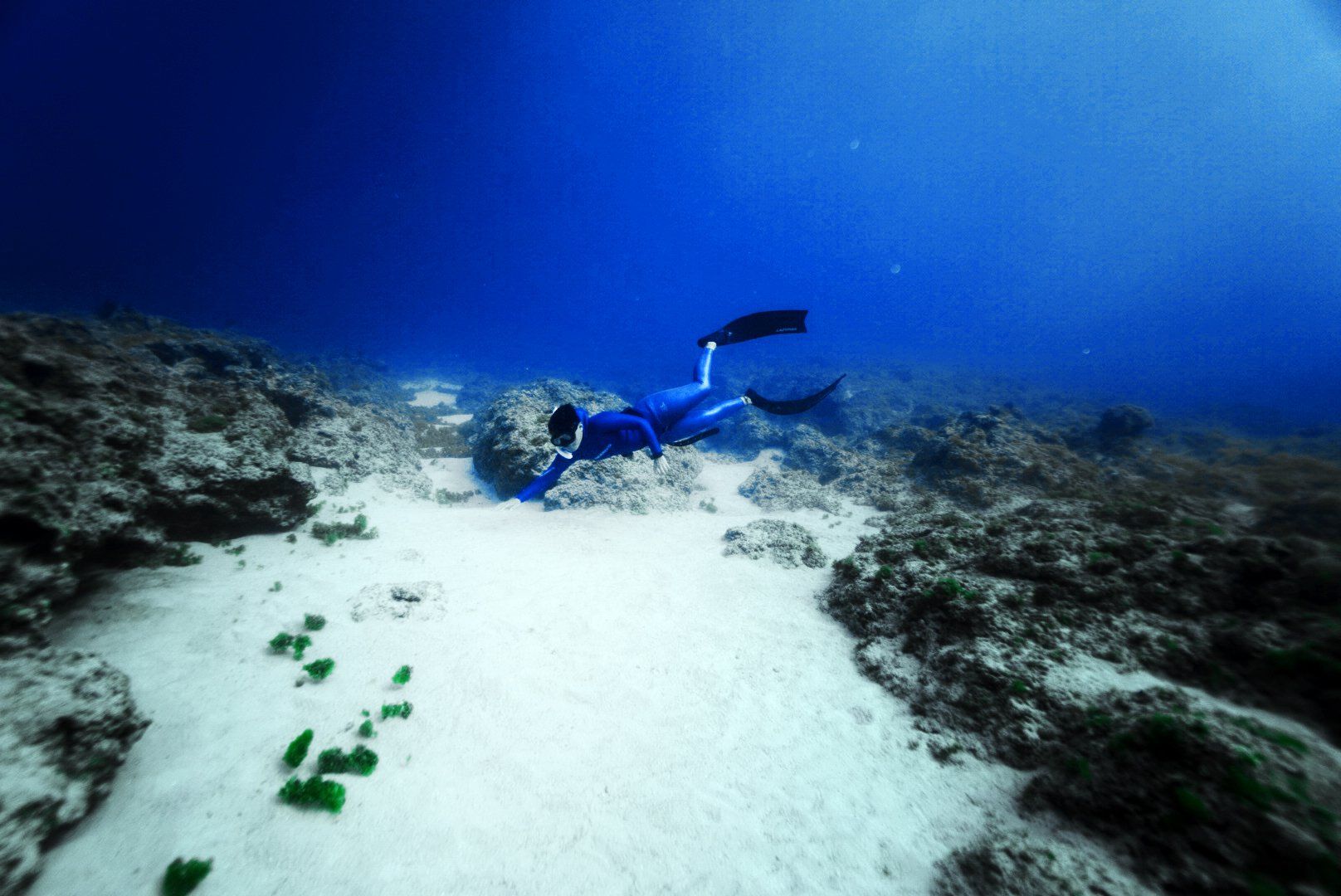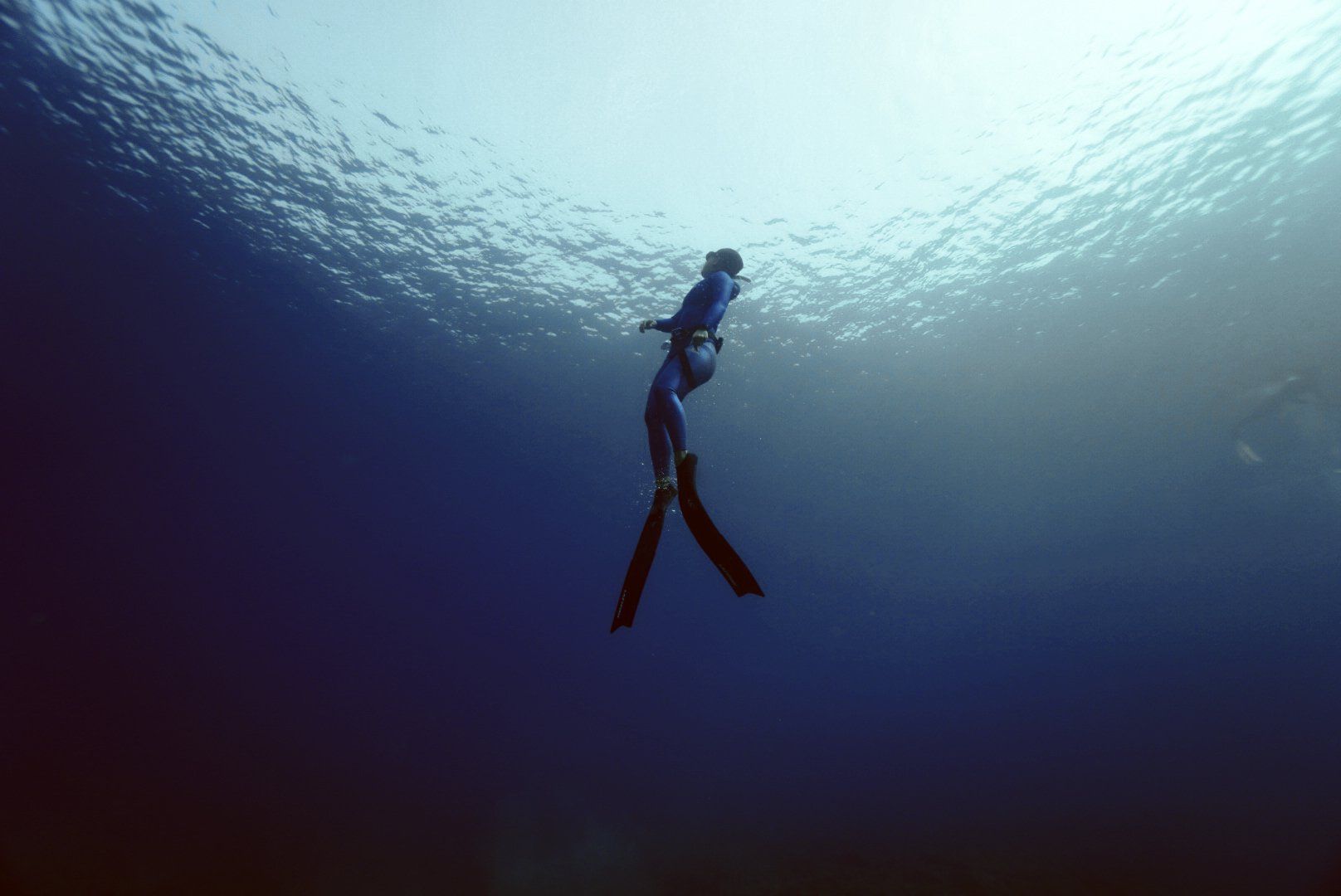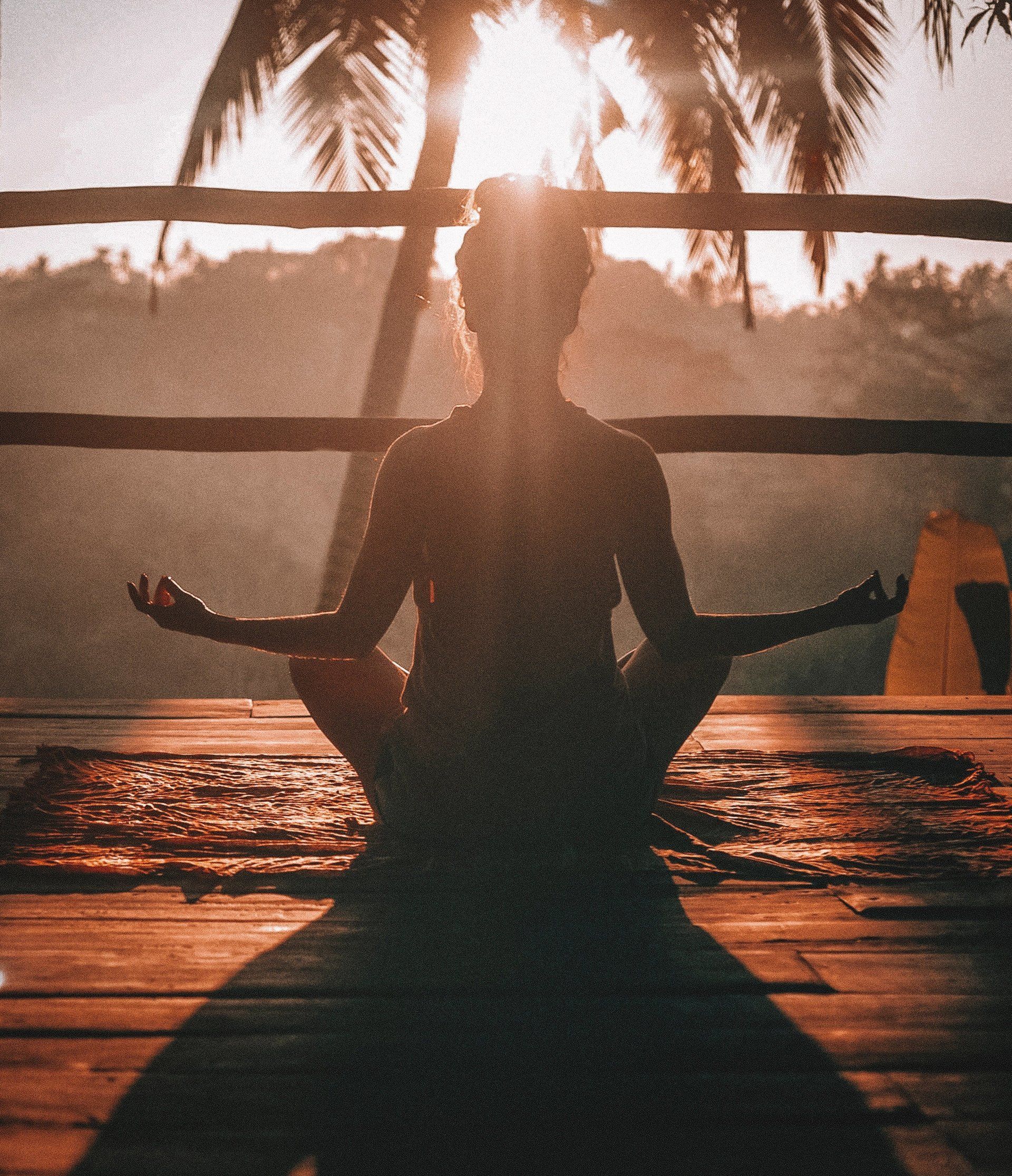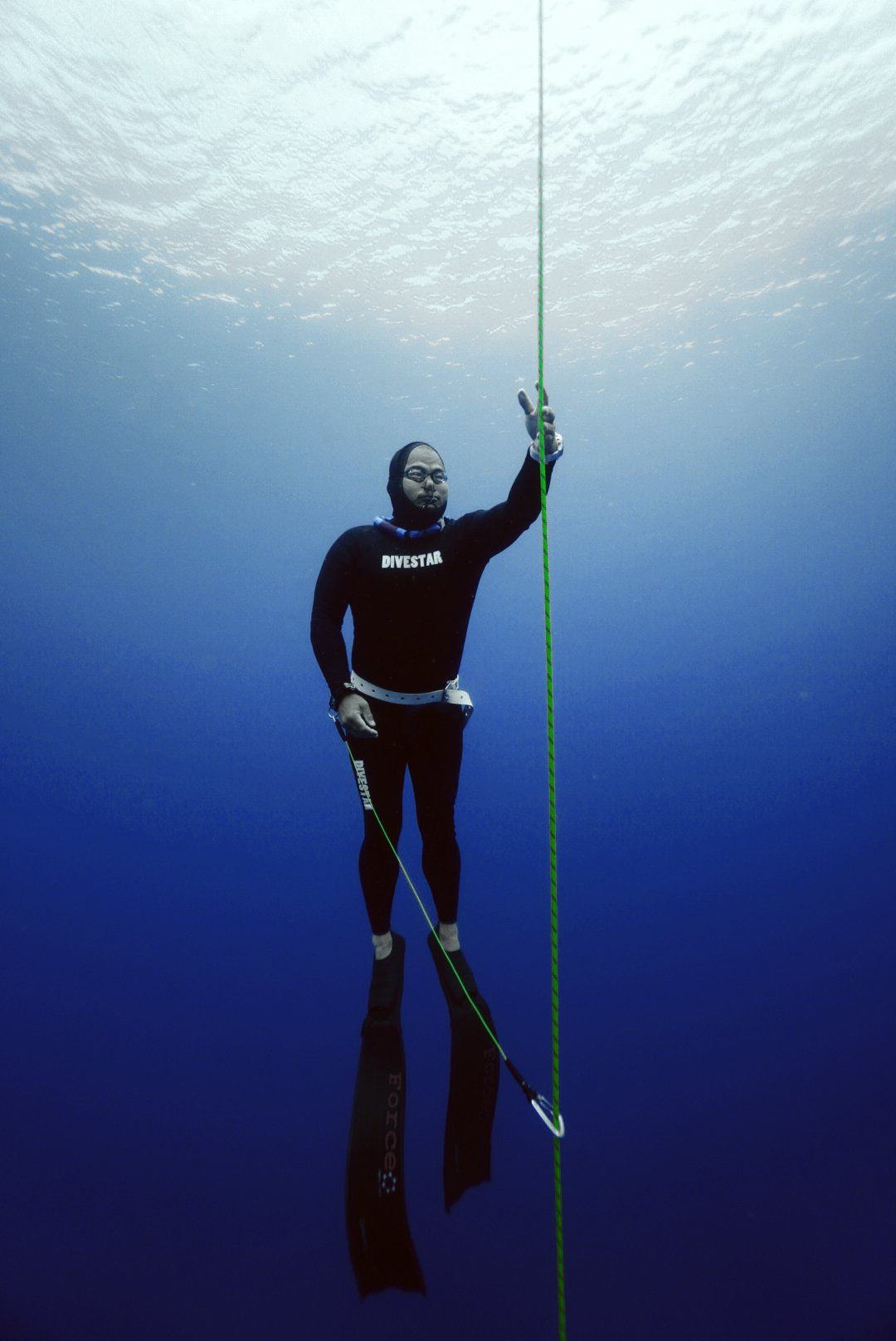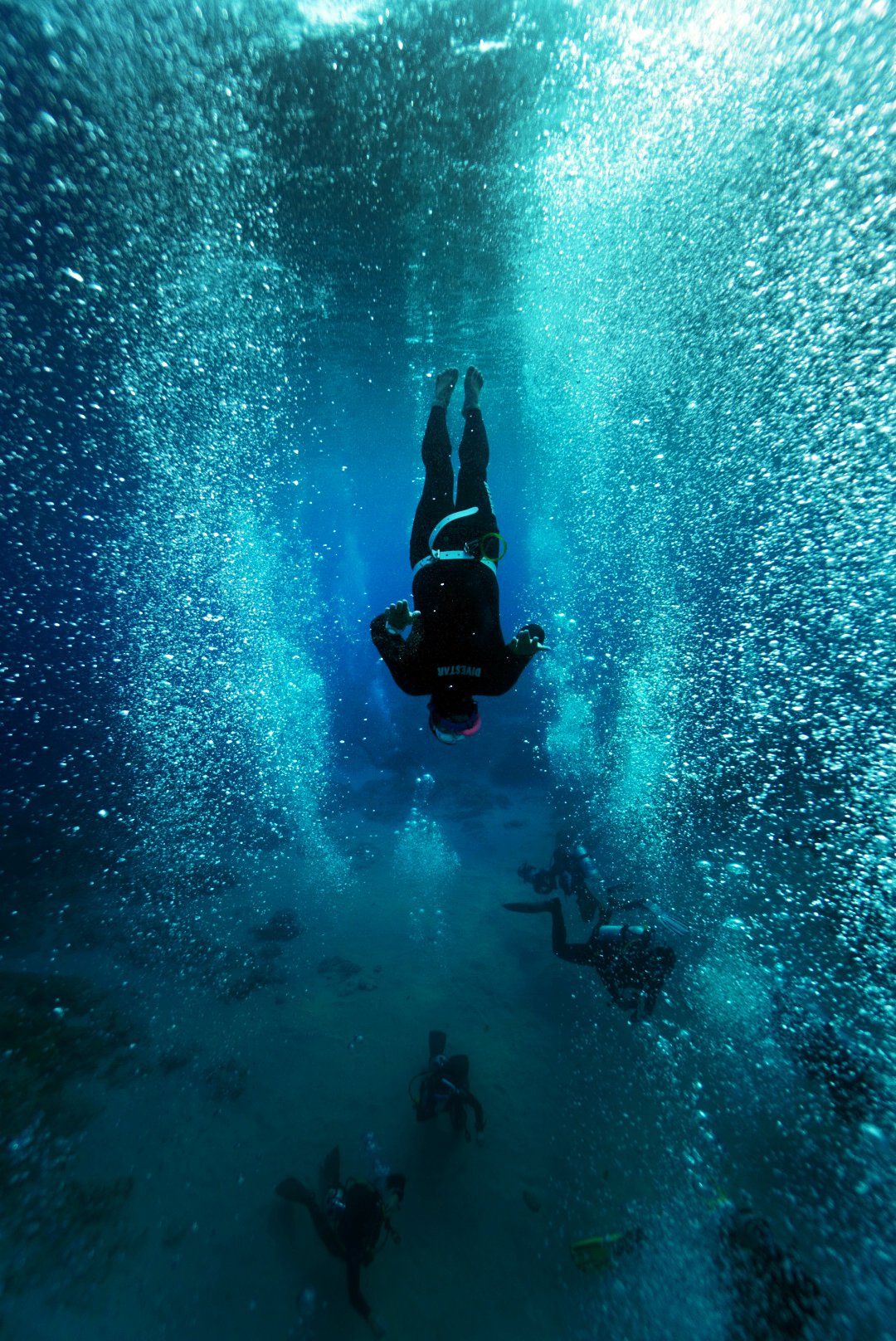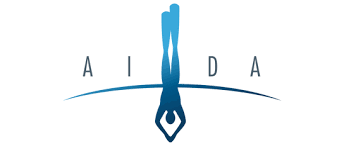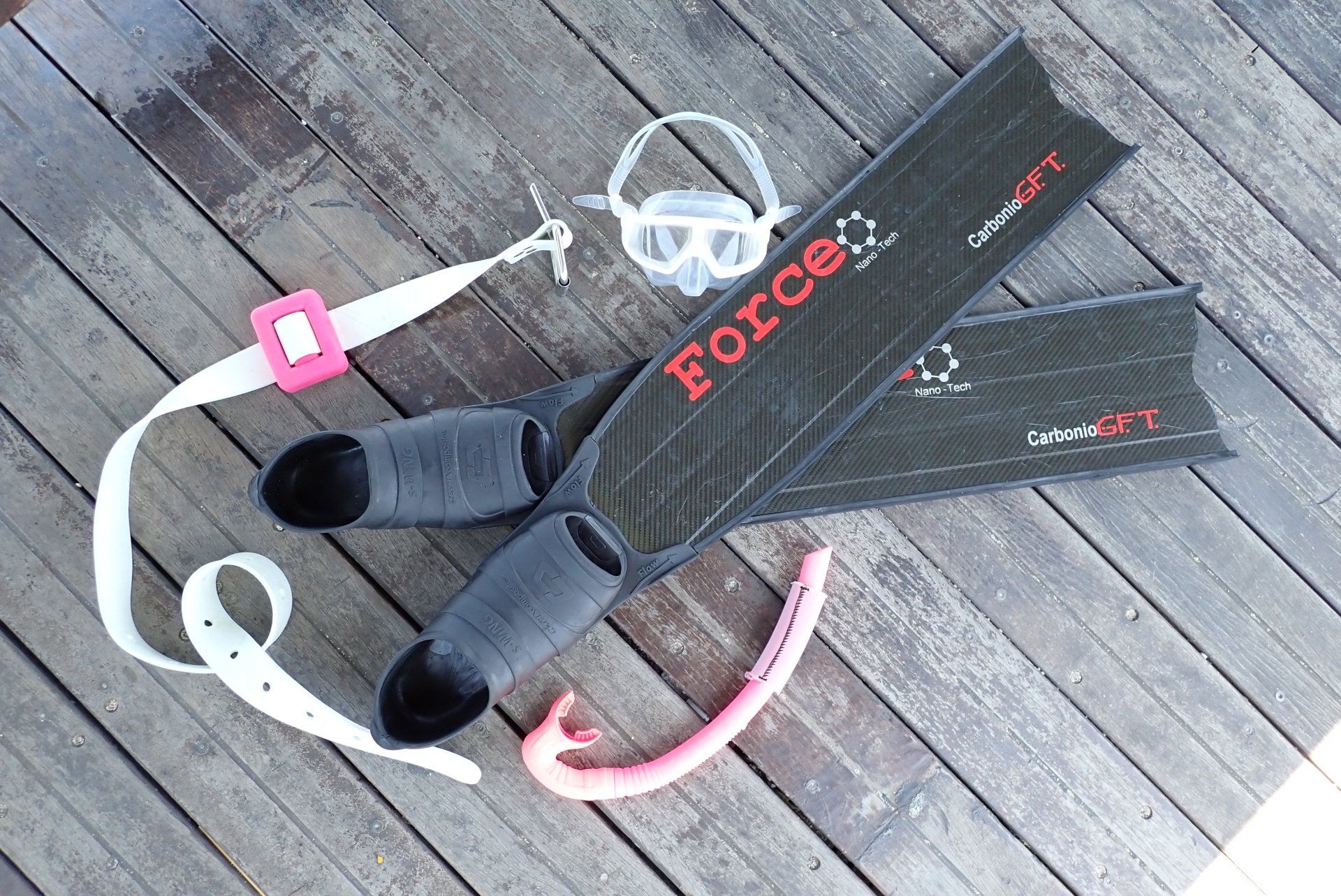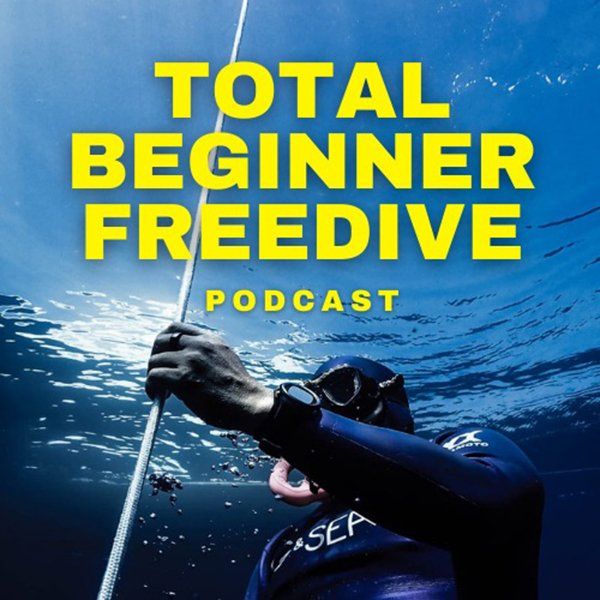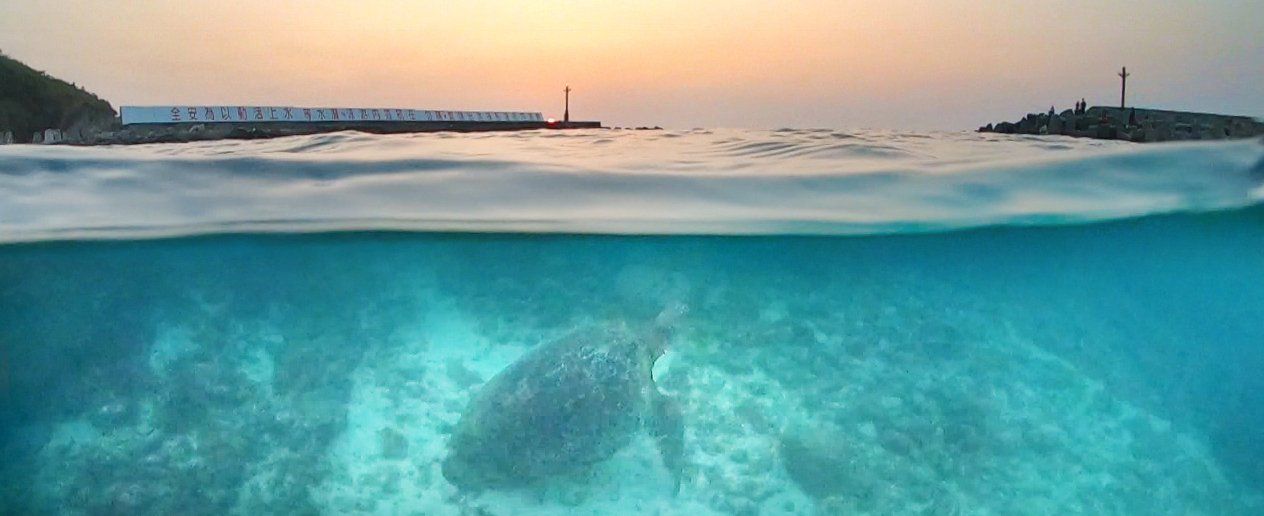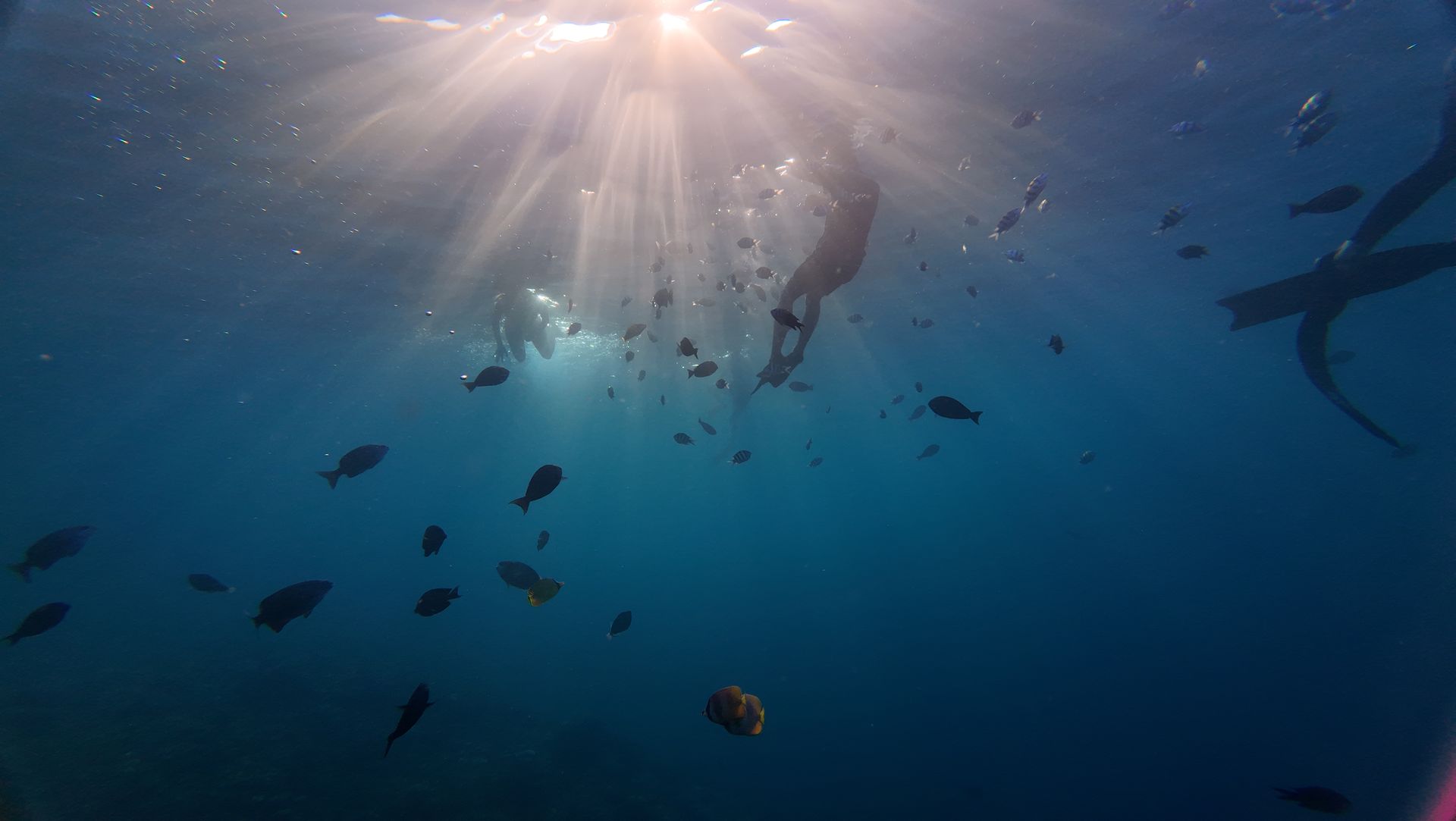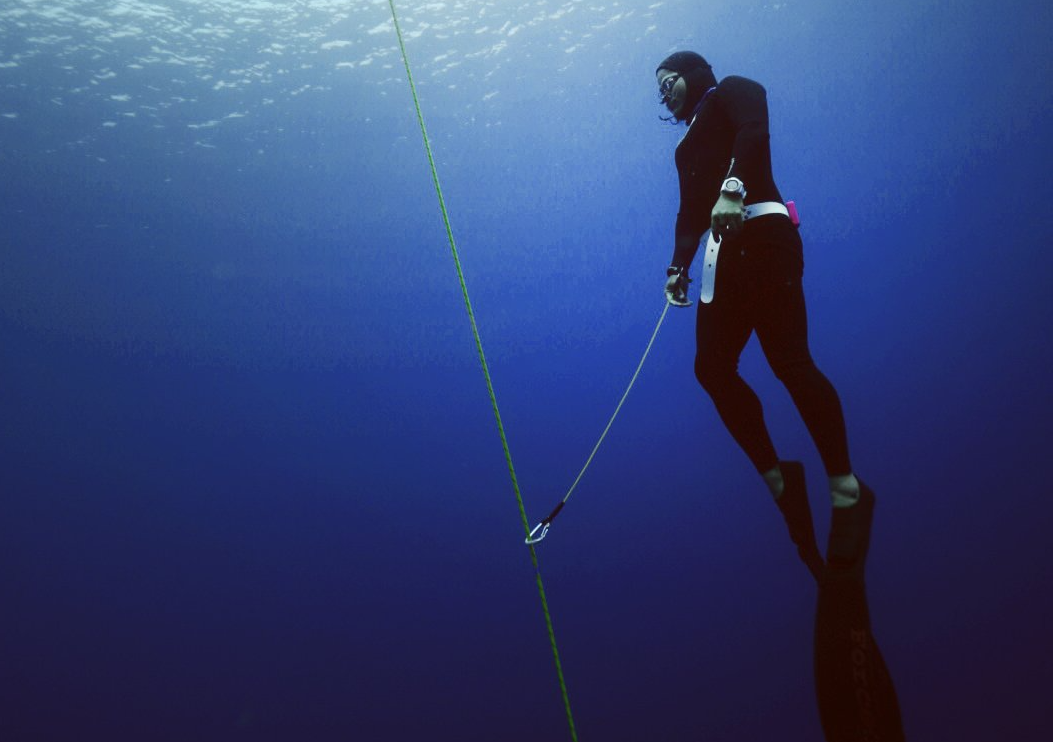
Recently Natgeo published an article on the rapid growth of freediving in Taiwan. But what exactly is freediving? Is freediving just a fancy word for swimming underwater? Well, not really. It’s more like diving without the air tanks and breathing equipment as you would with scuba. Freediving is the fastest-growing water sport in the world, and freedivers can dive deep into the water by using special techniques that allow them to stay underwater for long periods with a single breath.
The Art of Diving On One Breath
Freediving is diving and exploring the underwater world on a single breath. It's also sometimes referred to as one-breath diving, breath-hold diving, and apnea diving and is often mistaken for scuba diving.
People associate it with minimal equipment as it does not require cumbersome breathing equipment like the BCD (buoyancy control device), regulator, and hefty tank as you do in scuba.
Freediving is not just diving without any breathing apparatus or minimal equipment. Instead, freediving involves training one’s body to get used to the change in pressure and depths while diving. As a result, freedivers can overcome their natural fears of staying at great depths for long periods and eventually learn to do so without thinking.
How Divers Hold Their Breath For So Long?
The skill or ability to hold your breath is like any other skill, most people will need to be taught the technique behind the skill. But like anything else, there are naturals who are innately gifted and those who are not.
If you can't hold your breath for more than X seconds, rest assured that you can easily teach the technique of breath holding, and once you learn, you should be able to hold your breath for 1.5 to 2 minutes within an hour or two of learning.
The secret is learning how to take the largest breath and relax before and during the breath hold. Being able to attain higher levels of relaxation is the biggest needle mover in increasing your breath-hold time for beginners.
The Mammalian Dive Response is the physiological response by mammals like whales to hold their breath for over an hour and dive thousands of meters deep. This also occurs in humans. For us, the response helps us lower our heart rate, contract our spleen to release more reserve and oxygen-rich red blood cells, and dilate our carotid artery so our brain has more access to oxygen to prevent blackouts.
Though there is a lot of focus on increasing your breath hold, this is not the biggest challenge for going deeper for more advanced divers. The challenge for them is primarily being able to equalize. As you go deeper and deeper, the increasing hydrostatic pressure causes the volume of air to decrease, and divers reach a threshold where the volume of air is so small they no longer have access to it to equalize. As stated earlier, the diver can do regular training to adapt the body to these depths.
Is Freediving Dangerous?
Until recently, the only time you hear about freediving is when someone dies freediving, usually someone inexperienced and/or diving alone. Thus they unfairly believe that freediving is quite dangerous.
The quick answer to the above question is that freediving is relatively safe when you know what you are doing and very dangerous when you don't know what you are doing.
Benefits of Freediving
Freediving is starting to get known for its potential in the wellness industry, which as an industry is growing at double the rate of growth of the global economy.
Most forms of sport or exercise have obvious training and physical health benefits. And although there is a vital element of mental strength in the most competitive levels of a sport, freediving is one of the only sports that requires a deliberate striving for higher levels of relaxation to progress. Many freedivers describe freediving as meditative; thus, freediving is confidently an activity that rejuvenates both the mind and the body. Personally, it's done wonders to calm my racing mind.
Types Of Recreational Freediving
Recreational freediving can be classified under two categories - line diving and fun diving
Line Diving
Line diving rope/buoy arrangement with a rope pulled taut by a heavy weight and set at a pre-determined depth for each dive and diver. The diver will hold on to the buoy until it's time to dive in and use the rope as a guide on the descent and ascent.
This is the most common form of freediving when taking a course. This is also the general setup used in competitive freediving. Some recreational divers also do this type of diving as a personal challenge to dive even deeper and enjoy the meditative side of freediving.
Fun Diving
The skills learned in a beginner freediving course open up the possibility of fun diving. When you fun dive, you can use your newly acquired skills to see sea life on a coral reef or capture the underwater world by making videos or snapping photos. Learning proper techniques and safety procedures will make freediving safer and more enjoyable.
Getting Started with Freediving
The best and safest way of learning to freedive is to take a freedive course from an instructor or school from one of the international freediving agencies.
A proper and formal freediving education is not to be overlooked. As much as I love taking online courses to learn new skills, there is simply no substitute for an in-person freedive course. Depending on your instructor, part of the course may be taken online.
Once you pass all the requirements, you will become a certified freediver. Freediving certification is essential as you will need it to train with your local club or schools.
Beginner Freedive Course
A beginner freedive course, depending on the certifying agency and instructor/school, takes about 2-4 days.
Most courses have three parts: theory, pool, and open water.
Theory can take place online or in a physical classroom setting.
A pool session is obviously held in a pool or a confined water space in the ocean with a low current. In the pool session, you will learn static apnea, which is holding your breath while floating on the top of the surface face down, and dynamic apnea, which is finning horizontally in the pool to a predetermined distance. This comfortable and controlled environment allows you to work on your breath holding and finning skills before you use them to tackle depth in the open water session.
The open water session can be held in the ocean, lake, or deep pool like we have here in Taichung - DiveCube. During the open water session, you will learn to dive for depth by either pulling on a rope down (free immersion) or finning down (constant weight).
Course fees for a beginner course are generally in the range of US$300-500. In Taiwan, most courses are around NT$12,000 to $15,000 depending on various factors like equipment rental, instructor: student ratio, accommodations, etc.
I wrote a blog article, Guide to English Freediving Courses in Taiwan. You can read to help find a course and instructor that's right for you.
When choosing a school/instructor, I advise people not to consider the agency first. You should see if the instructor's teaching style, credentials, experience, or vibe is right for you and then check on the agency.
Make sure the instructor is certified by one of the international freediving agencies.
I have heard stories of instructors pretending to be instructors, and in an extreme case, there is one person I know of teaching students who don't even know how to swim to become freedive instructors in ten days. Because he is not certified by any agency to hold him up to any standard, his students have sometimes paid with their lives.
Freedive Course Prerequisites
Prerequisites for a freedive course are not many. Be able to swim around 200 meters, reasonably good shape, and health, and over a certain age, usually 16-18 years old. You will be given a medical form, and if you tick yes to any of the medical conditions, you will require a doctor's sign-off.
International Freedive Agencies
There are about a dozen international freediving agencies, with over half of them represented here in Taiwan. AIDA, the largest freediving agency in the world, is by far the most popular in Asia.
Other agencies represented in Taiwan are Molchanovs, SSI, Apnea Total, CMAS, and PADI.
Other freediving agencies are FII and PFI, which are pretty popular in the US, Apnea Academy, and RAID.
I am currently certified to teach Molchanovs and AIDA, though I prefer to teach Molchanovs.
AIDA International
This was one of the first freediving agencies and also officiated freediving competitions. They are primarily responsible for guiding the development of modern freediving to become standardized and safe.
Molchanovs
Based on the teachings and Russian course of the greatest freedive competitor ever to live and multiple world record holder, Natalia Molchanova and internationalized by her son, Alexey Molchanovs, and the current top freediver in the world.
Freediving Equipment
Despite not needing any breathing equipment, as this is the art of one-breath diving, some equipment is still necessary.
Of course, you can dive with no equipment, but that will not be as enjoyable.
As a bare minimum for a freedive course, you will need a mask, snorkel, fins, weight belt, weights, and, depending on the water temperature, a wetsuit.
As you advance in freediving, you will need more equipment and accessories like a lanyard, nose clip, fluid goggles, dive watch, etc.
Freediving Booming in Taiwan
Freediving has boomed in the last few years in Taiwan and is much more popular than in other countries. A lot of the national records for Taiwan are greater than the US, with a population of more than 12x of Taiwan.
I don't even know where to begin in trying to speculate why this is; I'd instead appreciate the country I love has embraced the sport/activity I love so much.
Taiwan has ideal conditions for the sport to take off. Many of the pools do allow freedive training. When I was in the US, finding a pool that would allow freediving was challenging. In the next section below you'll learn about the many locations there are to freedive in Taiwan, many year-round.
Where to Freedive in Taiwan
Taiwan is also home to one of the two deep pools in Asia, and the DiveCube in Taichung was the first dive pool in Asia. So if seaside conditions are not ideal for diving, you can reach Divecube via the High Speed Rail within two hours from most places in Taiwan. You could even make a day trip out of it.
Freediving in Xiaoliuqiu and Kenting is year-round, so there isn't an offseason in Taiwan.
You also have freediving when it's warmer and less windy off of Keelung, Penghu, Green Island, and Orchid Island.
And more.....
If you would like to learn more about freediving, sign up for my free online Intro to Freediving course by clicking here and check out my freedive podcast called the Total Beginner Freedive Podcast.
If you are looking for an English-speaking community of freedivers, check out the Taiwan Freediver's Syndicate Facebook Group.
Finally, if you are ready to take the plunge and want to take a one-on-one freedive course, check out the homepage of this website.
Stay connected and never miss an update! Click
here to subscribe to our freedive newsletter. You'll get exclusive access to our newest course schedules, freshly updated content, and intriguing insights into the world of freediving. We value your inbox space and promise to keep our emails interesting and spam-free.
ACTIVITIES RECOMMENDED
JOIN OUR COMMUNITY
Contact Us
Recent Posts
CLICK ICON BELOW TO SHARE POST




